The American Civil War: Ultimate Guide to Shocking Secrets
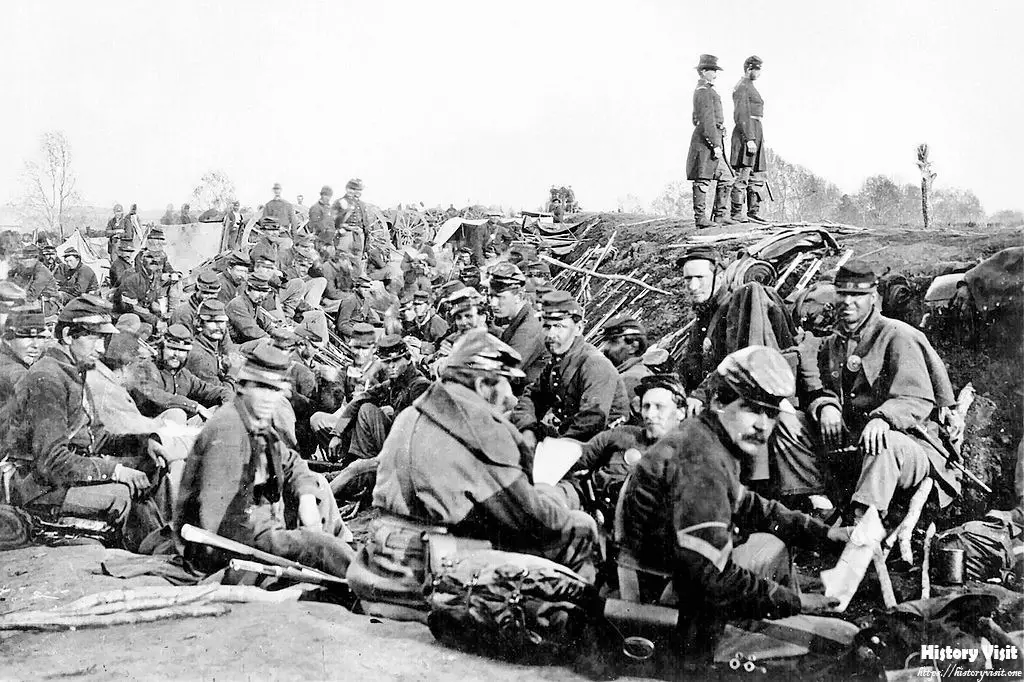
Introduction
The American Civil War is a significant event in United States history that shaped the nation’s future. To truly understand the impact of this war, one must delve into its causes, key events, and consequences. This guide will take you through an in-depth journey of The American Civil War, revealing fascinating details and critical moments that changed the course of history.
Firstly, the conflict began in 1861 and lasted until 1865. It was primarily a battle between the Northern states, known as the Union, and the Southern states, referred to as the Confederacy. The primary cause of The American Civil War was the deep-rooted issue of slavery, which created a divide between the North and South.
In this article, we will explore the various aspects of The American Civil War, including its background, major battles, key figures, and the aftermath. By the end, you’ll have a comprehensive understanding of this pivotal period in American history.
Causes of The American Civil War
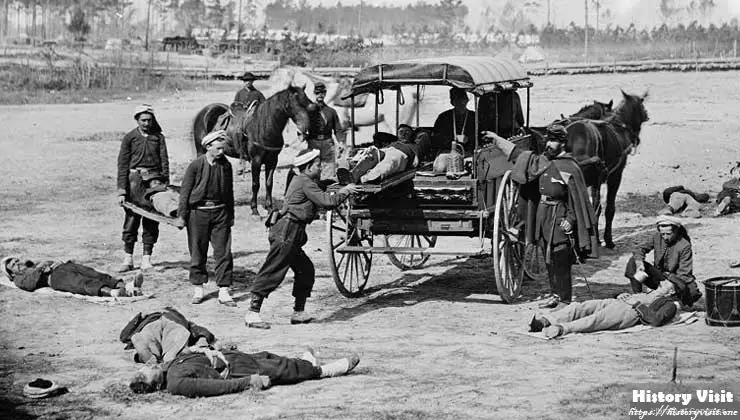
Economic and Social Differences
To begin with, one of the main causes of The American Civil War was the economic and social differences between the North and the South. The North was industrialized and relied on factories and businesses. In contrast, the South’s economy was based on agriculture, particularly cotton, which depended heavily on slave labor.
These differences created tension between the two regions. The North favored tariffs and taxes that would protect its industries, while the South opposed them. This economic divide was a significant factor that contributed to the outbreak of The American Civil War.
Furthermore, the social structures in the North and South were vastly different. The North had a more diverse society with a growing middle class. Meanwhile, the South was more hierarchical, with a rigid class system that placed plantation owners at the top and slaves at the bottom. This stark contrast in social systems fueled further discord.
States’ Rights vs. Federal Authority
Another crucial cause of The American Civil War was the debate over states’ rights versus federal authority. Southern states believed they had the right to govern themselves and make their own laws, including the right to maintain slavery. They argued that the federal government had no authority to interfere in their domestic affairs.
On the other hand, the North believed in a strong central government that could enforce national laws and policies. This clash over governance was another major factor that led to The American Civil War.
The tension reached a boiling point when several Southern states decided to secede from the Union, forming the Confederate States of America. This secession was the immediate trigger for the war, as the Union sought to preserve the nation and prevent its division.
The Role of Slavery
Undoubtedly, the most significant cause of The American Civil War was the issue of slavery. The North and South had opposing views on this matter, leading to intense conflict. The North wanted to abolish slavery, seeing it as morally wrong and economically outdated. In contrast, the South depended on slave labor for its agricultural economy and was determined to maintain the institution of slavery.
The fight over slavery intensified with events like the Dred Scott decision and the publication of Harriet Beecher Stowe’s “Uncle Tom’s Cabin.” These events highlighted the moral and political divide between the North and South, setting the stage for the inevitable conflict that became The American Civil War.
Major Battles of The American Civil War
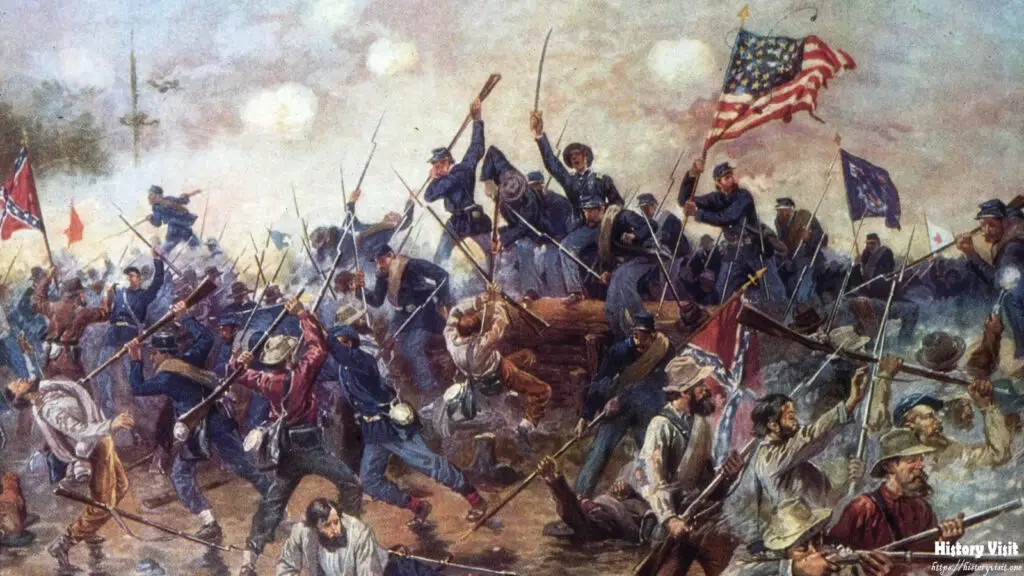
Battle of Fort Sumter
The first significant battle of The American Civil War was the Battle of Fort Sumter. It took place in April 1861, in Charleston Harbor, South Carolina. This battle marked the official start of the war, as Confederate forces fired upon the Union-held fort.
The Union troops, led by Major Robert Anderson, eventually surrendered after a 34-hour bombardment. The fall of Fort Sumter galvanized the North, leading to widespread support for the war effort. It also solidified the resolve of the Confederacy, making it clear that a long and bloody conflict was ahead.
The Battle of Fort Sumter is often seen as a symbol of the deep divisions within the United States at the time. It highlighted the willingness of both sides to engage in combat to defend their beliefs and way of life.
Battle of Gettysburg
Another pivotal battle of The American Civil War was the Battle of Gettysburg, fought from July 1 to July 3, 1863. This battle is considered a turning point in the war, as it marked the first major defeat of the Confederate Army under General Robert E. Lee.
The Union Army, commanded by General George G. Meade, successfully repelled the Confederate forces after three days of intense fighting. The Battle of Gettysburg resulted in heavy casualties on both sides, with more than 50,000 soldiers killed, wounded, or missing.
The Union victory at Gettysburg halted Lee’s invasion of the North and boosted Northern morale. It also marked the beginning of the end for the Confederacy, as they were forced to retreat and defend their territory from further Union advances.
Battle of Antietam
The Battle of Antietam, fought on September 17, 1862, is known as the bloodiest single-day battle in American history. The Union Army, led by General George McClellan, clashed with General Robert E. Lee’s Confederate forces near Sharpsburg, Maryland.
The battle ended in a tactical draw, but it was a strategic victory for the Union. Lee’s invasion of the North was stopped, and the Confederates were forced to retreat back into Virginia. This Union success gave President Abraham Lincoln the opportunity to issue the Emancipation Proclamation, which declared the freedom of all slaves in Confederate-held territory.
The Battle of Antietam also had significant political implications. It discouraged European nations from recognizing the Confederacy, as they were hesitant to support a regime that was fighting to preserve slavery.
Key Figures of The American Civil War
Abraham Lincoln

One cannot discuss The American Civil War without mentioning Abraham Lincoln. As the 16th President of the United States, Lincoln played a crucial role in leading the nation through its darkest period. His primary goal was to preserve the Union and end the institution of slavery.
Lincoln’s leadership and determination were instrumental in the Union’s eventual victory. He delivered some of the most iconic speeches in American history, including the Gettysburg Address and his second inaugural address, which highlighted the moral imperative of ending slavery and healing the nation.
Tragically, Lincoln’s life was cut short when he was assassinated by John Wilkes Booth in April 1865, just days after the war ended. His legacy, however, lives on as one of the greatest presidents in American history.
Robert E. Lee
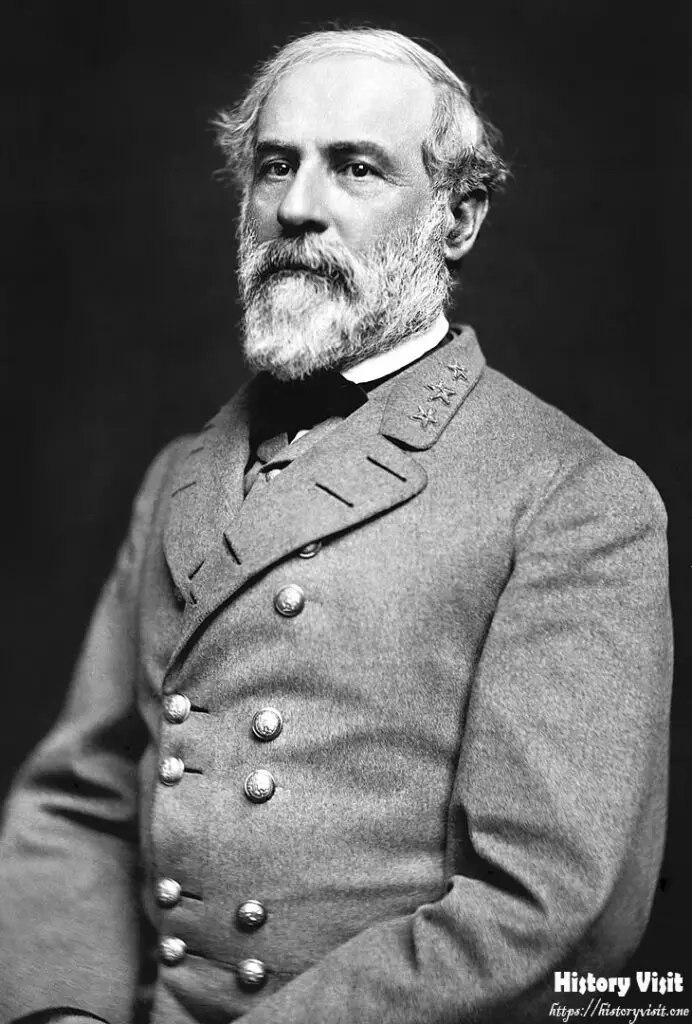
General Robert E. Lee was the leading commander of the Confederate Army. He is often regarded as one of the most brilliant military tacticians in American history. Lee’s leadership and strategic prowess earned him the respect of both his allies and enemies.
Despite his initial reluctance to join the Confederacy, Lee chose to fight for his home state of Virginia. He led the Confederate Army to several significant victories, including the Battle of Chancellorsville and the Second Battle of Bull Run.
However, Lee’s decision to invade the North culminated in his defeat at the Battle of Gettysburg. His surrender to General Ulysses S. Grant at Appomattox Court House in April 1865 marked the end of The American Civil War.
Ulysses S. Grant
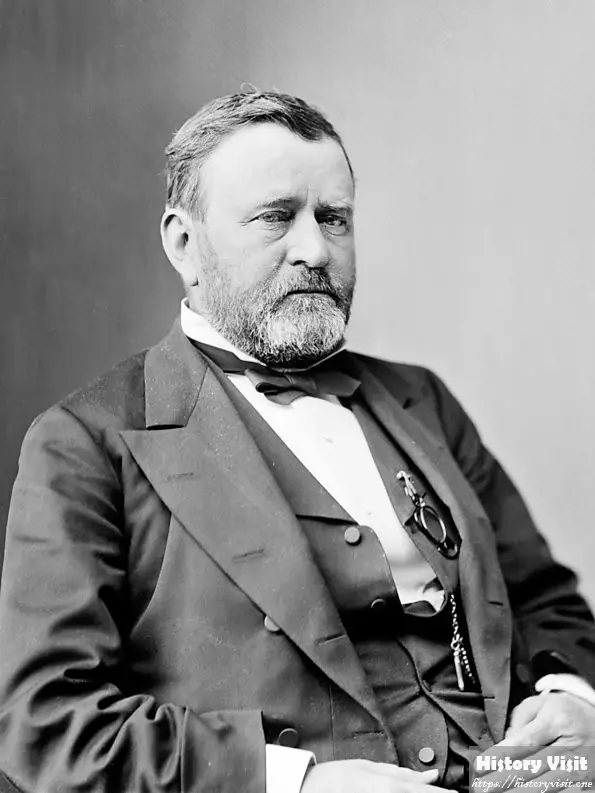
General Ulysses S. Grant was the leading commander of the Union Army during the latter part of The American Civil War. His aggressive tactics and determination played a crucial role in securing Union victories and ultimately winning the war.
Grant’s success in the Western Theater, particularly at the Battle of Vicksburg, earned him a promotion to General-in-Chief of all Union armies. His relentless pursuit of Confederate forces and strategic maneuvers led to the eventual surrender of Robert E. Lee.
After the war, Grant went on to become the 18th President of the United States, where he focused on Reconstruction and civil rights for freed slaves.
The Emancipation Proclamation
The Emancipation Proclamation was a landmark document issued by President Abraham Lincoln on January 1, 1863. It declared that all slaves in Confederate-held territory were to be set free. This proclamation transformed the nature of The American Civil War, making it a fight for human freedom and equality.
The Emancipation Proclamation had several significant effects. Firstly, it gave the Union Army a moral cause to fight for, boosting the morale of soldiers and supporters. It also discouraged European nations from supporting the Confederacy, as they were unwilling to align themselves with a pro-slavery regime.
Additionally, the proclamation paved the way for the eventual abolition of slavery in the United States. It led to the enlistment of African American soldiers in the Union Army, who played a crucial role in the Union’s victory.
Although the Emancipation Proclamation did not immediately free all slaves, it was a significant step towards the eventual passage of the 13th Amendment, which abolished slavery throughout the United States.
The Aftermath of The American Civil War
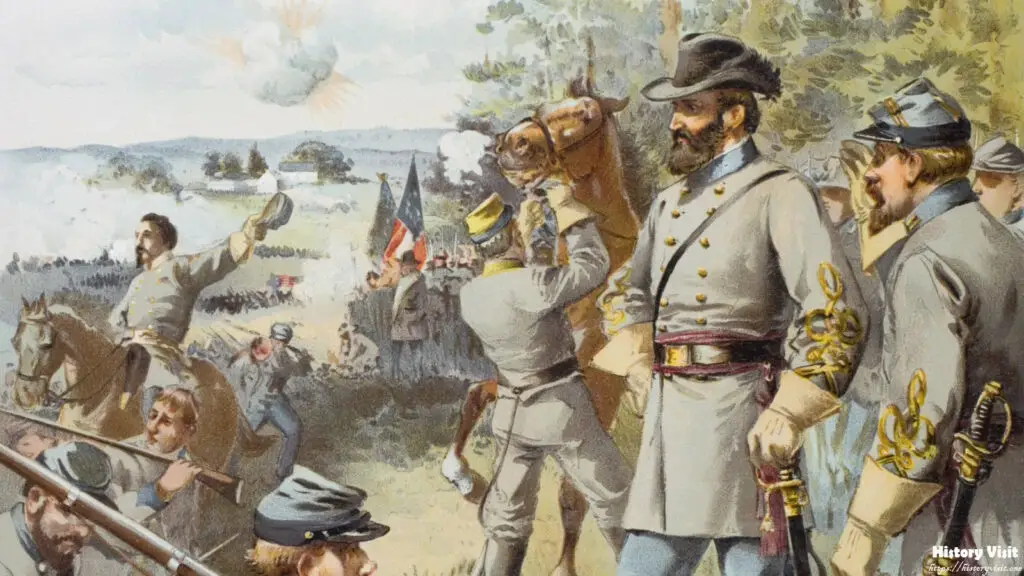
Reconstruction Era
The period following The American Civil War is known as the Reconstruction Era. This time was marked by efforts to rebuild the South and integrate formerly enslaved people into society. The federal government implemented various policies and laws aimed at achieving these goals.
The Reconstruction Era saw the passage of the 13th, 14th, and 15th Amendments to the Constitution. These amendments abolished slavery, granted citizenship to all born or naturalized in the United States, and protected the voting rights of African American men, respectively.
Despite these advancements, the Reconstruction Era was fraught with challenges. Many Southern states resisted the changes, leading to the rise of white supremacist groups like the Ku Klux Klan. The era ended in 1877, leaving a mixed legacy of progress and unfulfilled promises.
Economic and Social Impact
The American Civil War had a profound impact on the United States’ economy and society. The war devastated the Southern economy, destroying infrastructure and disrupting agriculture. The abolition of slavery also forced the South to transition to a new labor system, which was a slow and difficult process.
In contrast, the Northern economy experienced a boom during the war. Industrial production increased, and new technologies were developed. The war also spurred significant advancements in medicine and transportation.
Socially, the war brought about major changes. The abolition of slavery was a monumental achievement, but it also left millions of formerly enslaved people struggling to find their place in a society that was still deeply racist. The war also resulted in significant loss of life and left many families mourning their loved ones.
Legacy and Memory
The legacy of The American Civil War continues to shape the United States to this day. The war established the principle that the United States is a single, indivisible nation. It also set the stage for future civil rights movements by highlighting the importance of equality and human rights.
The memory of the war is preserved through countless monuments, museums, and reenactments. The Civil War remains a popular subject of study and discussion, as people continue to explore its causes, events, and consequences.
The war also serves as a reminder of the dangers of division and the importance of striving for unity and justice. By understanding the lessons of The American Civil War, we can work towards a more inclusive and equitable society.
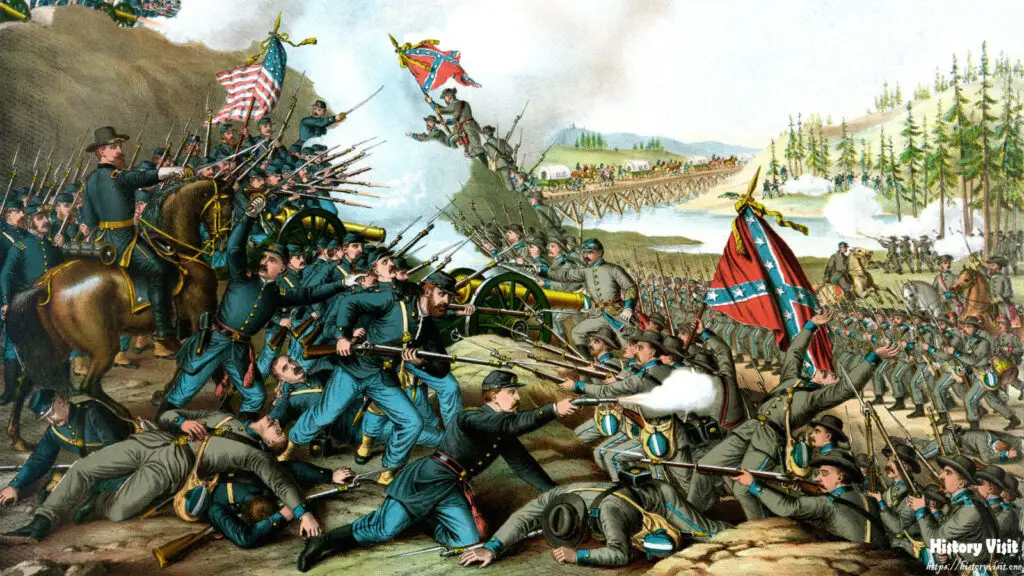
Conclusion
In conclusion, The American Civil War was a transformative period in United States history. The conflict arose from deep-seated economic, social, and political differences between the North and South, with slavery being the central issue. Major battles, such as the Battle of Fort Sumter, the Battle of Gettysburg, and the Battle of Antietam, defined the war and its outcome.
Key figures like Abraham Lincoln, Robert E. Lee, and Ulysses S. Grant played pivotal roles in shaping the course of the war. The Emancipation Proclamation was a significant milestone that redefined the war’s purpose and paved the way for the abolition of slavery.
The aftermath of the war, including the Reconstruction Era, brought significant changes to American society and the economy. The legacy of The American Civil War continues to influence the nation, reminding us of the importance of unity and the ongoing struggle for equality.
Understanding The American Civil War is crucial for comprehending the history and development of the United States. By studying this pivotal event, we can appreciate the sacrifices made and the progress achieved, and strive to build a better future based on the lessons learned from the past.


